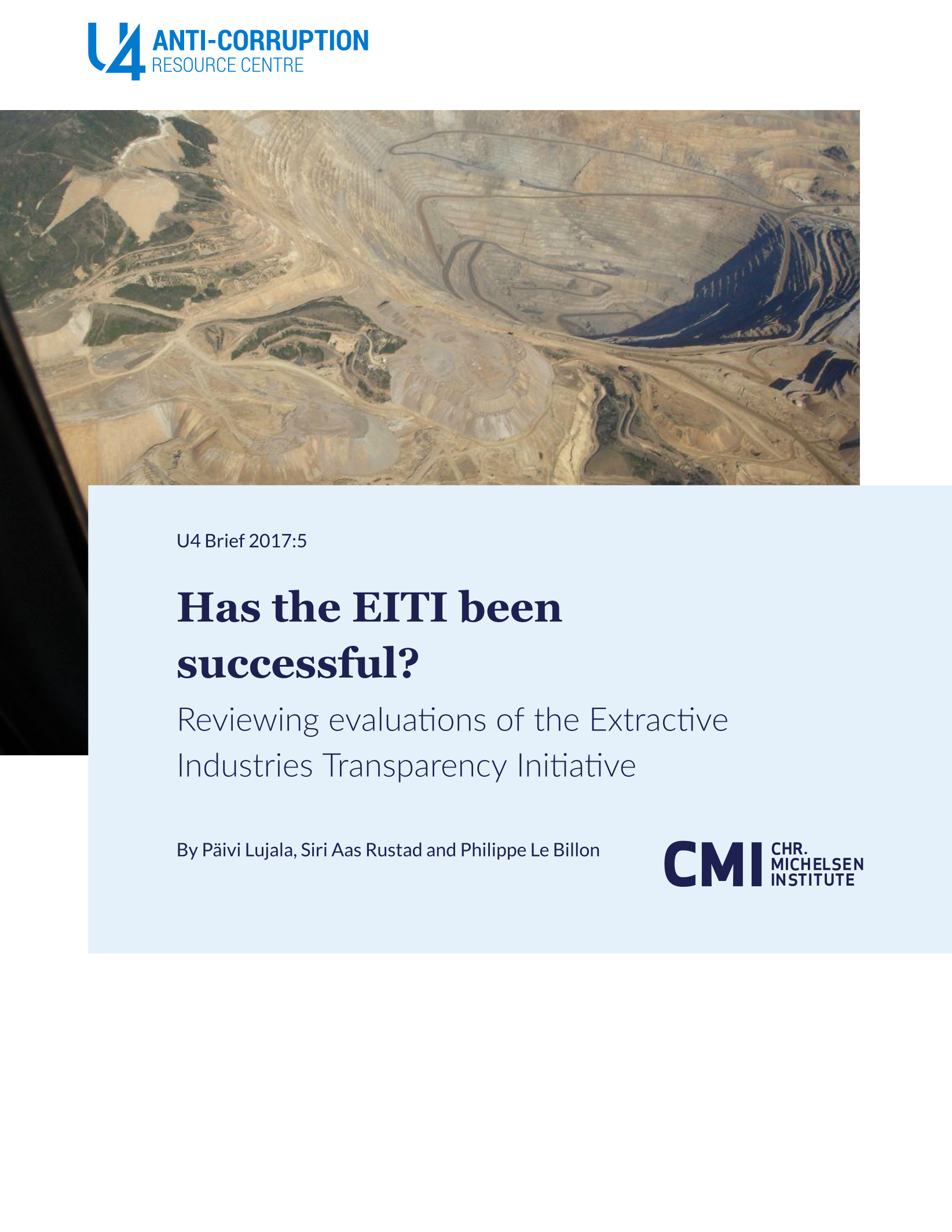Main points
- Evaluations should be more specific about what they assess, both in terms of measured outcomes and mechanisms tested
- Evaluations should consider crucial issues in assessing the effectiveness of the EITI
- Evaluations should be methodologically more sophisticated



